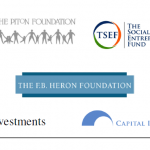Millennials’ Mindset
The term “Millennial” first surfaced in the work of generational theorists William Strauss and Neil Howe. Strauss and Howe’s work, mixing demographic statistics, cultural archetypes and hand-drawn cartoons, got many things wrong about Millennials: the authors insisted that Millennials were trusting of authority (polling by the Harvard Institute of Politics shows Millennial trust in government at a 5 year low) and ready to obey the rules (Millennial participation fueled the Occupy movement). However, Strauss and Howe were right about the central trait they thought would characterize Millennials: a civic orientation toward life.
This civic orientation – to approach life resolved to improve the quality of life in one’s community rather than merely increasing the quantity of wealth in one’s accounts – stems from coming of age while many large institutions ignore the central challenges of our time. While climate change loomed larger and larger, the country launched itself into foreign wars and let financial cronyism shake the very foundations of our economy. This pattern of events has shaken (or completely destroyed) the confidence that many Millennials placed in our governing institutions and the major economy entities intertwined with it.
How then, can Millennials maintain a civic orientation toward life? Aside from the excitement around President Obama’s 2008 campaign, the Millennial generation has not made its impact felt on the political scene. Rather than surveying national events, we ought to look on a more local level. Look at the occupations they choose to take up and the beliefs (documented by the Brookings Institution) that land them there: Millennials prefer to work at organizations whose work they consider meaningful. Let’s look at how they choose to invest, favoring things of real value, like tangible assets and impact investing. Let’s look at how they spend or refuse to spend their dollars, and how they choose to contribute to their immediate communities. While car ownership is down, car sharing is up. Cooperative living has returned to American cities in response to higher rents and skepticism of the financial structures that have been built around home ownership. Even as Millennials disengage with many of the purchases and structures – cars, homes, etc. – that have defined American life and have shaped American values – they have become more networked and connected.
It remains to be seen whether this generation can reengage and reconnect with our governing institutions and put their civic mindset to work to solve the largest challenges that face us. Acting on a local level will not be enough. But a good frame of mind is a good place to start.





